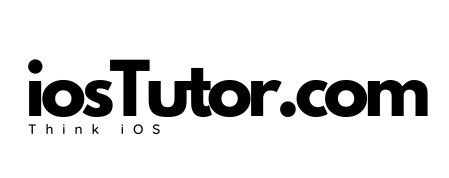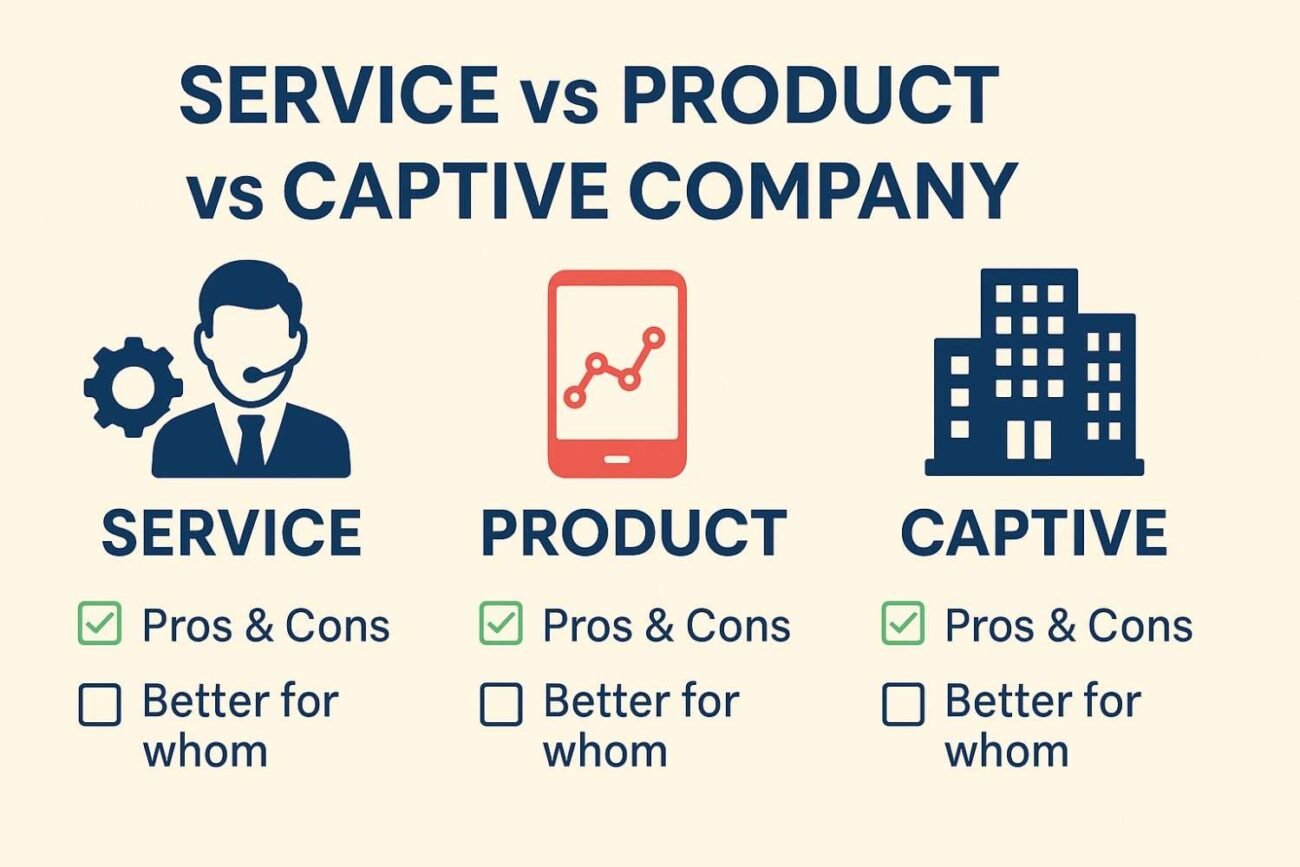Once we spend a few years in the IT industry as software engineers, our priorities start to shift. What we once looked at as “just a job” becomes something we evaluate more carefully — not just for salary, but for job stability, career growth, work-life balance, and the kind of work we want to do.
One of the biggest factors that influence these aspects is the type of company we work for. Broadly, IT jobs fall into three categories:
- Service companies
- Product companies
- Captive companies (also called tech captives or Global Capability Centers)
Let’s check what each of them means, their pros and cons, and who they are best suited for.
1. Service Companies
These companies work for other businesses — they offer IT services, consulting, development, or support to external clients.
Examples: TCS, Infosys, Wipro, Cognizant, HCL
✅ Pros:
- Entry-level friendly: High hiring volume, easier for freshers and career switchers.
- Great learning exposure: These roles expose you to multiple client projects, different domains, and tech stacks.
- Structured training: Well-established onboarding, mentorship, and upskilling programs.
- Work abroad opportunities: Long-term onsite chances for client locations.
- Great learning exposure: You’ll gain experience with various domains and tech stacks.
- Good for freshers: Well-structured onboarding, training, and project rotations.
- Job availability: High volume of hiring, easier to enter as a fresher or lateral.
- Work abroad opportunities: Long-term onsite chances for client locations.
❌ Cons:
- Client dependency: May be on the bench if projects aren’t available.
- Lower job security: Roles can be project-based; if a contract ends, reassignment may take time.
- Limited product ownership: Work is often restricted to specific modules or tasks, not full control.
- Frequent shifts: Teams and projects can change often, affecting continuity.
- Work-life balance varies: Depending on the client and deadlines, long hours may be expected. if projects aren’t available.
- Limited product ownership: Work is often restricted to specific modules or tasks, not full control.
- Frequent shifts: Teams and projects can change often.
- Work pressure: Some clients may have tight deadlines or unrealistic expectations.
Best For:
- Freshers or early-career engineers wanting broad exposure
- Engineers looking to explore various domains or gain international work experience
2. Product Companies
Produxt companies build and sell their own software products — like SaaS tools, platforms, apps, or consumer software.
Examples: Google, Zoho, Microsoft, Adobe, Salesforce, Freshworks
✅ Pros:
- Ownership & innovation: You work on a specific product, contributing to features end-to-end.
- Stable tech stack: Product development often involves clean architecture, version control, and proper planning.
- Good compensation: Product firms often pay better than service companies.
- Company culture: Emphasis on tech growth, mentorship, and creativity.
- Better work-life balance: Many product companies (Not all) promote flexible schedules and healthier pace., contributing to features end-to-end.
- Stable tech stack: Product development often involves clean architecture, version control, and proper planning.
❌ Cons:
- Competitive entry: Interviews can be tougher and more algorithm-heavy.
- High performance expectations: You’re expected to deliver real user impact and innovation.
- Less domain variety: You work on one product domain over time (which can be a pro or con).
- Job security tied to product success: If the product underperforms or pivots, roles may be affected. and more algorithm-heavy.
- High performance expectations: You’re expected to deliver real user impact and innovation.
- Less domain variety: You work on one product domain over time (which can be a pro or con).
Best For:
- Developers who enjoy deep technical work and product lifecycle ownership
- Those aiming to become architects, product managers, or startup founders
3. Captive Companies (Tech Captives / GCCs)
Captive companies (also called Global Capability Centers) are offshore technology centers owned by multinational product or non-tech companies. They build and maintain internal applications or platforms for their parent company.
Examples: Walmart Global Tech, Target Tech, JPMC, Goldman Sachs, Tesco, Shell, Mercedes-Benz R&D
✅ Pros:
- Job stability: Captives have long-term plans and stable roadmaps since they’re internal.
- Work-life balance: Captive centers generally maintain regular hours and value sustainability.
- Domain expertise: You work deeply in a specific industry (retail, finance, pharma, automotive).
- Balanced work culture: Many captives offer product-like culture with enterprise-grade stability.
- Enterprise-scale architecture: Exposure to large systems, global users, and compliance-driven work. and stable roadmaps since they’re internal.
- Domain expertise: You work deeply in a specific industry (retail, finance, pharma, automotive).
- Balanced work culture: Many captives offer product-like culture with enterprise-grade stability.
- Enterprise-scale architecture: Exposure to large systems, global users, and compliance-driven work.
❌ Cons:
- Less public-facing projects: Most apps are internal tools, not visible to end consumers.
- Domain lock-in: You may spend several years in one domain like banking or healthcare.
- Limited brand recognition: Unless it’s a big brand like Apple or Walmart, some captives may go unnoticed on resumes.
- Job security tied to parent company: If the parent company changes global strategy, offshore teams may be impacted., not visible to end consumers.
- Domain lock-in: You may spend several years in one domain like banking or healthcare.
- Limited brand recognition: Unless it’s a big brand like Apple or Walmart, some captives may go unnoticed on resumes.
Best For:
- Experienced engineers seeking long-term, stable careers with meaningful ownership
- Those interested in domain-specific expertise (e.g., fintech, supply chain, retail, healthcare)
Conclusion: Which One Should You Choose?
There’s no universal “best” — it depends on your career stage, goals, and work preferences:
| Career Priority | Best Fit |
|---|---|
| Broad learning & rotation | Service company |
| Deep product work & growth | Product company |
| Stability + internal ownership | Captive company |
If you’re just starting, service companies provide a strong foundation, or mid-level and want challenges, product companies are ideal, or looking for long-term career stability with real-world domain expertise, captive tech teams are often underrated but highly rewarding.
Pro Tip: Whichever path you choose, focus on building core development skills, mastering system design, and being ready to collaborate in cross-functional teams — because that’s what makes you future-proof across all company types.

